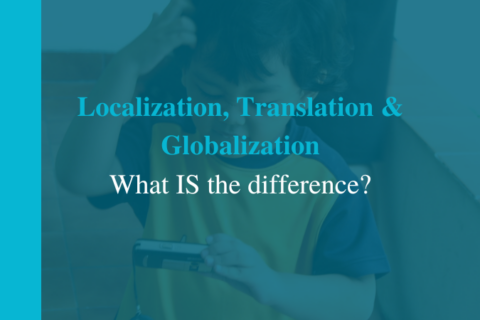3 Tips for Selecting the Best Voice Talent for TTS
Text to Speech or TTS for short is the conversion of written text to computer-synthesized speech by software. Many eLearning tools, providers and practitioners are starting to use this technology to replace the traditional [or non-existent] voice actor. In this three-part series, we will evaluate the pros and cons of TTS systems as well as some important factors you should consider when using TTS in learning and development. Our first pass will focus on how to select the “best” voice talent for TTS.
When you are looking for the “best” voice talent for TTS applications, you first need to realize that there really is no such thing as an all-around “best” TTS voice, only the best suited. There is a little bit of nuance to what makes a voice applicable. That exercise includes asking questions like:
- What is the voice for?
- Should it be male or female?
- What accent do you need?
- What age should the voice sound like?
And, once you have your criteria for a good voice, is it something you can find?
Selecting Voice Talent for TTS
When selecting voice talent for TTS, it’s identical to what you do for any voice. You must consider your audience and the content you are asking them to digest. Things to consider in voice selection:
- Who is my audience and do we care about gender?
- In many cases, gender is irrelevant. For example, when talking about personal finance to impellers and gears – the fact you have a voice offering bi-modal content [written and spoken] is all you need.
- In some cases, though, you need a Gender to convey a certain character or dialogue.
- Tonality/Age:
- Some scripts are neutral and like gender and are free from associations.
- If you have a policy matter or content for a mature audience, you probably want a more mature voice speaking to the target audience. Likewise, if you have juvenile content, a younger voice will obviously work better.
- Casting:
- This is a broad category in terms of casting–sometimes you know what you want the voice to sound like. In regular Voice Overs, many actors have personalities, or associated dialects [regional, cultural, etc.] that can either pre-dispose them for some parts of exclude them from others. While it might sound overly biased to say that X person doesn’t fit role Y–it’s exactly what casting is about.
- Pacing, Fit, Accent – Does this voice fit the part? Will people think it sounds odd?
Now that you have a list of the general characteristics you want from a voice, it’s easier to select the voice talent for TTS projects, especially in Learning & Development applications. Stay tuned for our next blog in this series, where we’ll cover some of the selection criteria for TTS applications and also review the 3 major Cloud TTS vendors and compare their offerings.
If you need help with TTS, voice talent, localization and translation services, Global eLearning is widely considered to be a leader in TTS, specifically for the learning and development industry. Contact us today to get started!

Gilbert Segura is the CTO at Global eLearning. Learn more about Gilbert!


